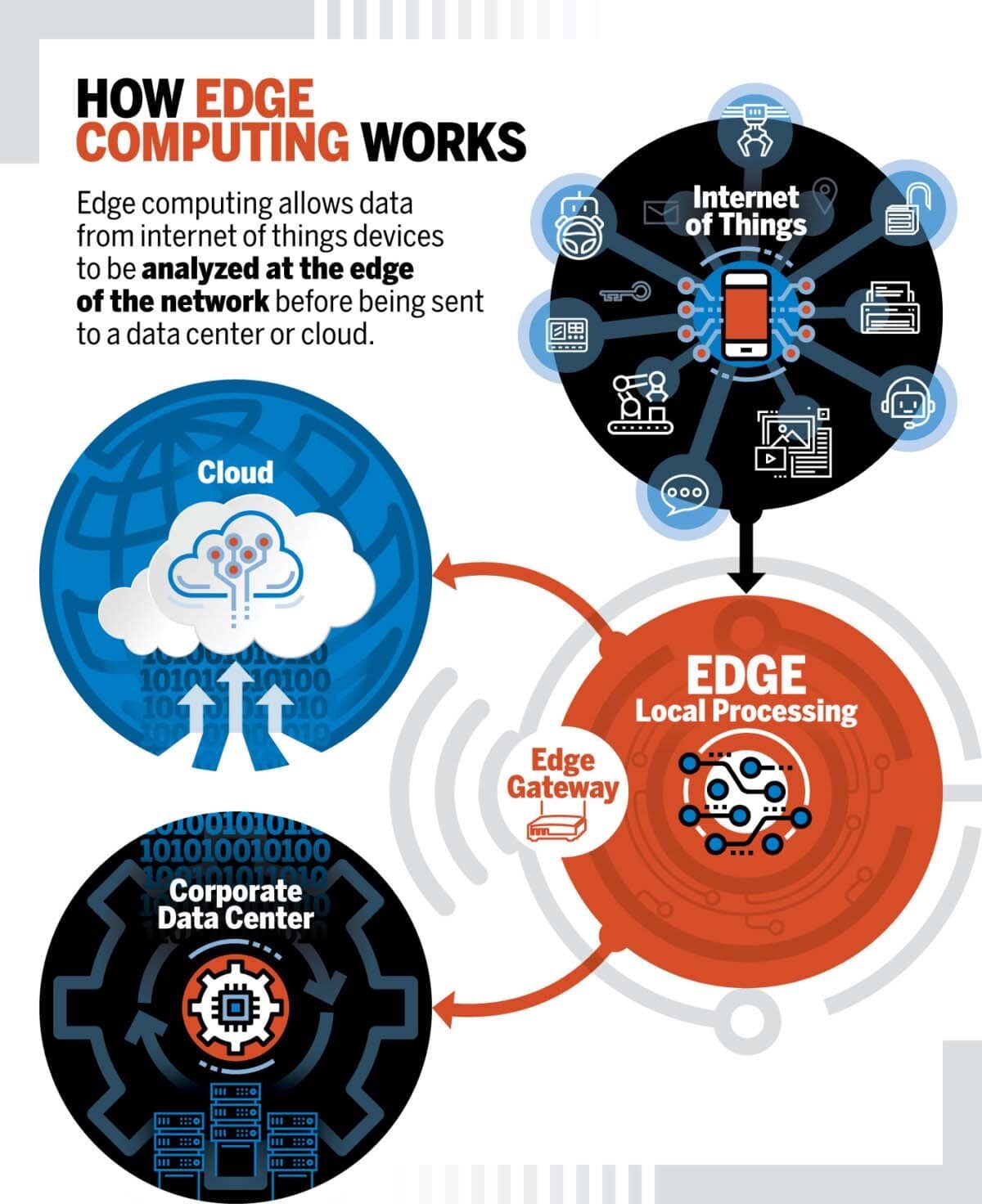Science & Technology
Edge Computing
- 30 Oct 2019
- 3 min read
Edge computing is defined as the deployment of data-handling activities or other network operations away from centralized and always-connected network segments (like Dropbox, Gmail, etc.) and toward individual sources of data capture, such as endpoints like laptops, tablets.
- It is an extension of cloud computing, and differs in terms of time taken in processing the information. The data is analysed locally, closer to where it is stored, in real-time without latency.
- It is predicted that edge computing would be the next big trend after cloud. The global edge computing market is forecasted to reach more than $ 8 Billion by 2025 valued growing at more than 32% between 2019-2025.
Advantages of Edge Computing
- Quick: Edge computing allows for quicker data processing and content delivery while streaming a video on platforms like Netflix or accessing a library of video games in the cloud.
- Future Technology Enabled: Technologies such as 5G wireless technology and artificial intelligence enable faster response times, lower latency (delay), and simplified maintenance in computing.
- Localised solution: It is preferred over cloud computing in remote locations, where there is limited or no connectivity to a centralized location. These locations require local storage, similar to a mini data centre, with edge computing providing the perfect solution for it.
- Data-Efficient: That data doesn’t need to be sent over a network as soon as it processed; only important data is sent. Therefore, an edge computing network reduces the amount of data that travels over the network.
Cloud Computing
- It is the delivery of different services through the Internet. These resources include tools and applications like data storage, servers, databases, networking, and software.
- Rather than keeping files on a proprietary hard drive or local storage device, cloud-based storage makes it possible to save them to a remote database. As long as an electronic device has access to the web, it has access to the data and the software programs to run it.
- It is a popular option for people and businesses for a number of reasons including cost savings, increased productivity, speed and efficiency, performance, and security.




